How to Open a Beauty or Spa Studio in Canada
Permits, Licenses & Legal Checklist (2025)
Opening your own spa or esthetician studio in Canada can be a fulfilling step toward business independence and personal brand building. Whether you're a licensed esthetician or an advanced aesthetics provider, it's important to understand the legal, operational, and safety requirements that vary across provinces.
This guide covers everything you need to know about opening a beauty studio or medical spa in Canada in 2025, including business registration, health permits, location standards, and liability insurance requirements.
1. Registering Your Business: Step-by-Step Process
Choose a Business Structure:
- Sole proprietorship
- Partnership
- Corporation (for tax or liability purposes)
Register Your Business Name:
- Use a name search tool (NUANS) to ensure uniqueness
- Register your name through the provincial business portal (e.g., ServiceOntario, Registraire des entreprises Québec)
Get a Business Number (BN):
-
Issued by the Canada Revenue Agency (CRA) for tax, payroll, and GST/HST collection
Municipal Licensing:
- Most cities require a Personal Services License or Salon Permit to operate legally
- Check with your local city hall or municipal business centre (e.g., Toronto Municipal Licensing & Standards)
2. Esthetician or Spa Business Licensing Requirements by Province
There is no national esthetician business license in Canada. Licensing requirements vary by province and city:
Ontario (ON)
- Must register your esthetics business through ServiceOntario
- Health inspections are mandatory for spas offering facials, waxing, or any invasive services
- Personal Services Settings (PSS) regulations apply under the Ontario Public Health Standards
British Columbia (BC)
- Local business license required from city (e.g., Vancouver Business Licensing Office)
- Must comply with WorkSafeBC and BC Centre for Disease Control hygiene guidelines
- If using laser/IPL: medical oversight may be required
Alberta (AB)
- Register through Alberta Registries
- Some municipalities require salon licensing
- AHS (Alberta Health Services) inspects personal services settings
Quebec (QC)
- Must register through Registraire des entreprises du Québec
- Spa services regulated by local public health departments (Santé publique)
- Medical esthetic procedures require physician oversight
Nova Scotia (NS)
- License required by the Cosmetology Association of Nova Scotia (if offering esthetics services)
- Must meet infection prevention protocols and site inspection requirements
3. Location & Facility Requirements
Choosing the right location is key—not just for marketing, but also for regulatory compliance.
Minimum Requirements Often Include:
- Proper ventilation and lighting
- Handwashing sink in treatment rooms
- Sanitation/disinfection station
- Separate clean and dirty linen areas
- No carpet in treatment zones (for hygiene)
- Accessible restroom
Some municipalities may restrict home-based spas, especially for services involving skin penetration or laser equipment.

4. Health, Hygiene & Infection Control Regulations
Most provinces follow standards outlined in the Canadian Guidelines for Personal Service Settings, covering:
- Equipment sterilization
- Glove/mask usage
- Surface disinfection between clients
- Client consent for higher-risk procedures
You may be subject to surprise inspections by local health authorities, especially when offering waxing, facials, or microneedling.
Pro Tip: Always document cleaning procedures and keep MSDS sheets (Material Safety Data Sheets) on site.
5. Business Insurance: What You Need
To protect yourself, your clients, and your investment, consider the following spa business insurance types:
| Insurance Type | Coverage |
|---|---|
| General Liability | Injuries inside your spa or property damage |
| Professional Liability (Malpractice) | Treatment errors or allergic reactions |
| Commercial Property Insurance | Theft, fire, or water damage to spa equipment |
| Product Liability | Reactions to skincare or beauty products sold |

6. Optional: Medical Oversight for Advanced Services
If you plan to offer laser hair removal, skin resurfacing, microneedling, or any medical-grade services:
- You may need a Medical Director (licensed physician) to supervise
- Some provinces (e.g., Nova Scotia, BC) classify laser/IPL as restricted-use devices
- Ensure all staff are trained and certified in applicable advanced aesthetic modalities
Final Thoughts
Opening a spa or esthetician studio in Canada is an exciting but highly regulated process. From getting a municipal license to ensuring your treatment rooms meet hygiene standards, compliance is the key to building a trustworthy and successful beauty business.
With proper training, a legally registered business, and high-quality equipment, you’ll be ready to welcome clients into a clean, safe, and stylish space.
Need help choosing professional-grade spa furniture and treatment beds? 👉 Browse Spa Equipment for Canadian Studios




Leave a comment